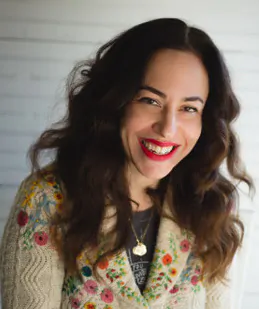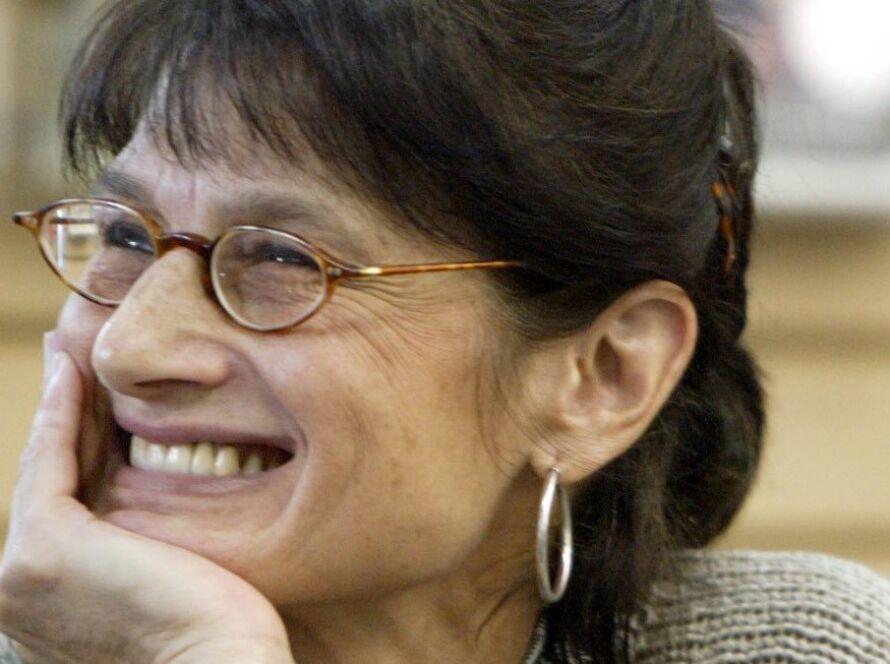Reyna Grande, who entered the US as an undocumented child migrant, taught our flash master class “The Art of the Scene” in 2018. Here’s our exclusive interview with this award-winning author.

What books are you currently reading?
I just finished reading The Sympathizer by Viet Thanh Nguyen. I loved this book very much. Though the pacing is slow and deliberate, the language is beautiful and the story is intriguing. I found myself wanting to highlight so many sentences and passages. It offered a fresh view on the Vietnam War and the role that the U.S. played in it, the crimes committed against the Vietnamese people and their country, and the refugees that lost their homes.
What books do you return to over time? Why?
The books I have re-read for the past twenty years are: 1) The Fountainhead by Ayn Rand, because I find the protagonist very inspiring. The story is about an architect who wants to create buildings that are unique and honor the material from which they are made, but society insists that he should create replicas of the “masters” before him. He has to fight for his unique vision. That book taught me that as an artist I, too, must fight for my vision and truth. 2) The Mists of Avalon by Marion Zimmer Bradley, which is the tale of King Arthur but told from the point of view of the women. I found this book inspiring and I felt the author did a great job showing how women can navigate a man’s world and have an important role in history despite the limitations imposed upon them by patriarchy. 3) The Prophet by Kahlil Gibran, which is a book that makes me think deeply about love, joy, children, marriage and other important things in life. I love the exquisite language and images.
Which three writers, dead or alive, would you like to have coffee or drinks with? Why?
I would like to have coffee with Juan Rulfo, Sor Juana Inés de la Cruz, and Carlos Fuentes. I admire their writing and would love the chance to talk about their work and ideas
Do you have a secondary passion or talent apart from writing that might surprise people to know about?
I like creating, and when I don’t create on the page I create in other ways. I like to sew, and though I am not an expert, I can make skirts, aprons, dresses, and of course, Halloween costumes for me and my kids. I also love to garden, so I spend a lot of time planting, pruning, or doing outdoor projects. My latest project, which I finished two days ago, was a brick patio and path. I can do brick work, I can tile, and I love to paint walls. I also like making jewelry, and I make earrings, bracelets, and necklaces, which I give to friends and family. My creativity is what gives me the most joy.
If you could offer three tips to writers what would they be?
1. Spend as much time learning about the business of writing as you do the craft of writing. Don’t just learn how to write a book, learn how to sell it. Don’t just focus on being an artist, learn how to be a salesperson as well.
2. Do not publish a book and then not bother to promote it. You can’t reléase a book into the world and move on to the next one. You must absolutely promote your book and perhaps spend as much time promoting it as you did writing it. Your book isn’t going to land on the hands of readers by the grace of God.
3. The writing is in the re-writing. Don’t get lazy. Do as many drafts as possible. When you can’t stand to look at your book anymore, take a break, then do another draft. And another.
What were the highlights for you about your experience at Under the Volcano?
I loved that unlike conferences in the U.S., which often divide themselves into White poeple vs. People of color, UTV doesn’t have that ‘racial’ divide or complicated dynamic. Because it is a conference that attracts writers from all over the world, I felt part of a global community of writers. I felt welcomed by all, and connected to each and every writer. I also love that at UTV I am able to use English and Spanish, switch back and forth all day long and not have to choose one language over the other the way I do in the U.S.
What was your moment of greatest despair as a writer and how did you get out of it?
I loved that unlike conferences in the U.S., which often divide themselves into White poeple vs. People of color, UTV doesn’t have that ‘racial’ divide or complicated dynamic. Because it is a conference that attracts writers from all over the world, I felt part of a global community of writers. I felt welcomed by all, and connected to each and every writer. I also love that at UTV I am able to use English and Spanish, switch back and forth all day long and not have to choose one language over the other the way I do in the U.S.



